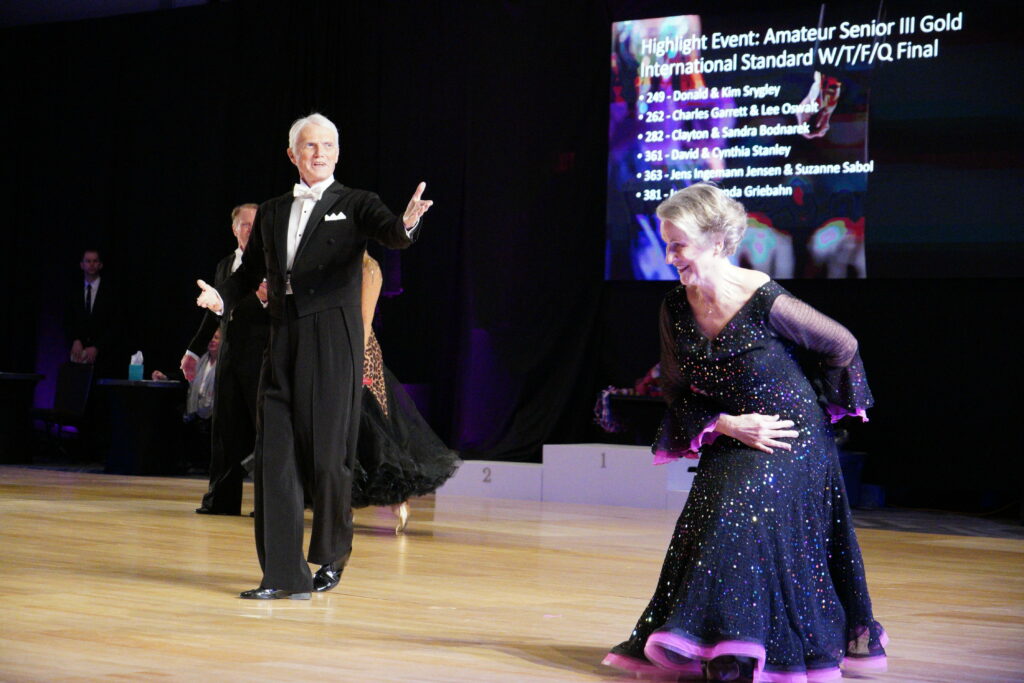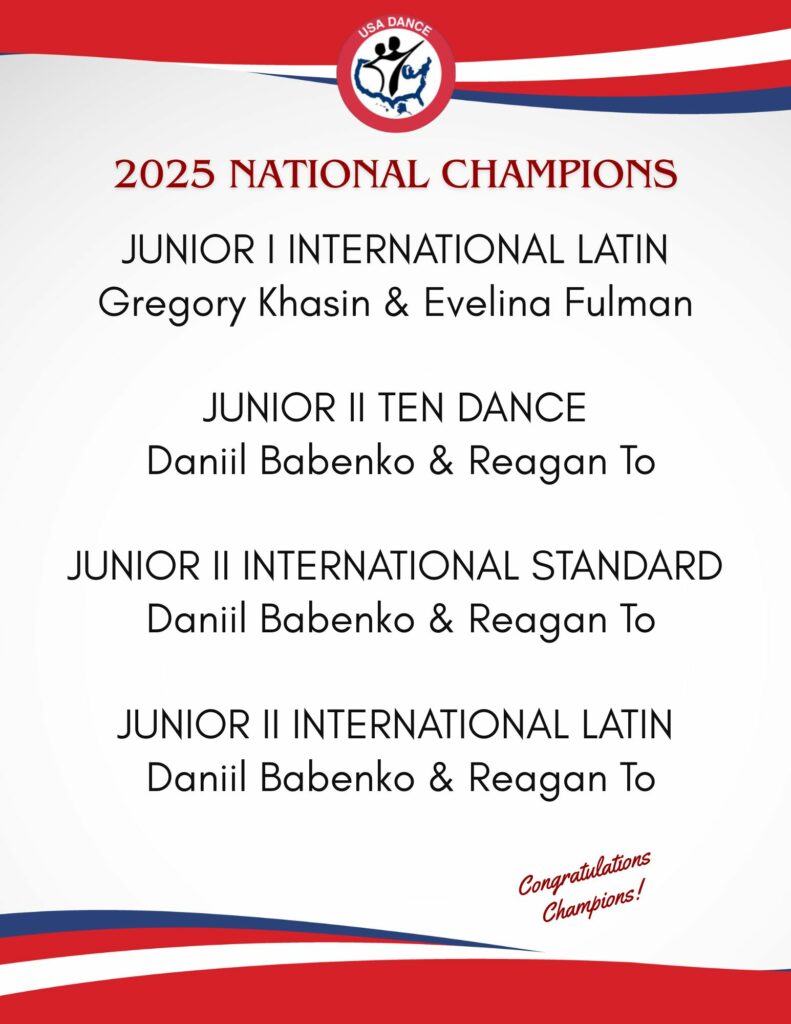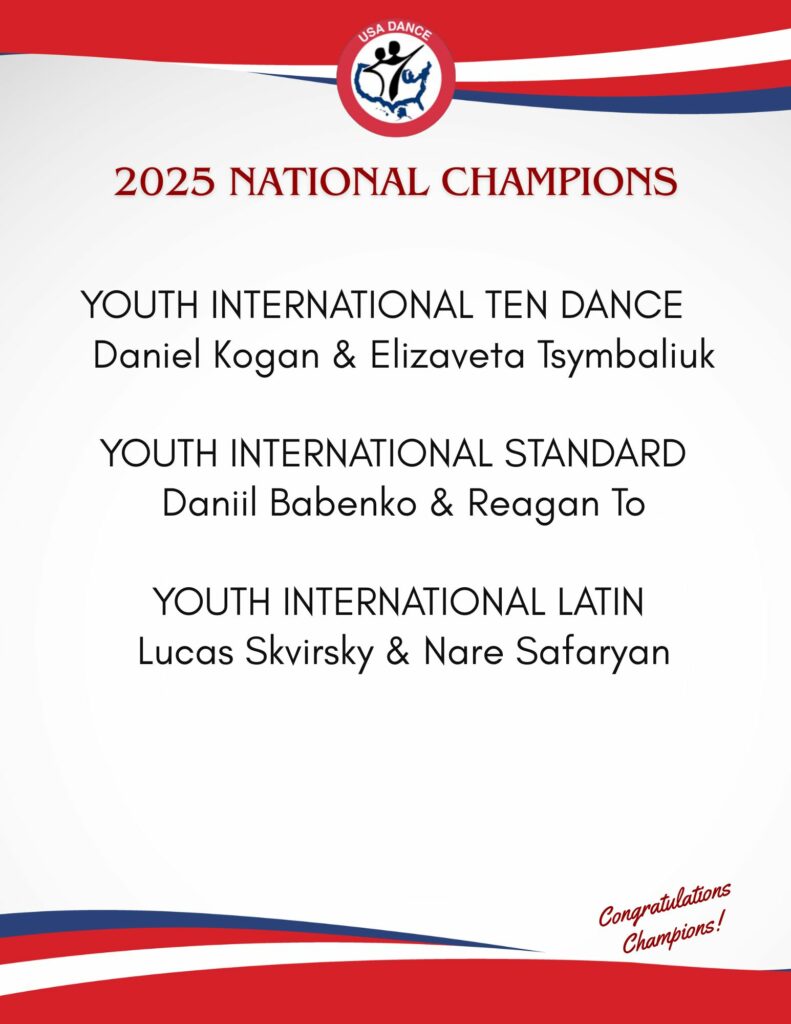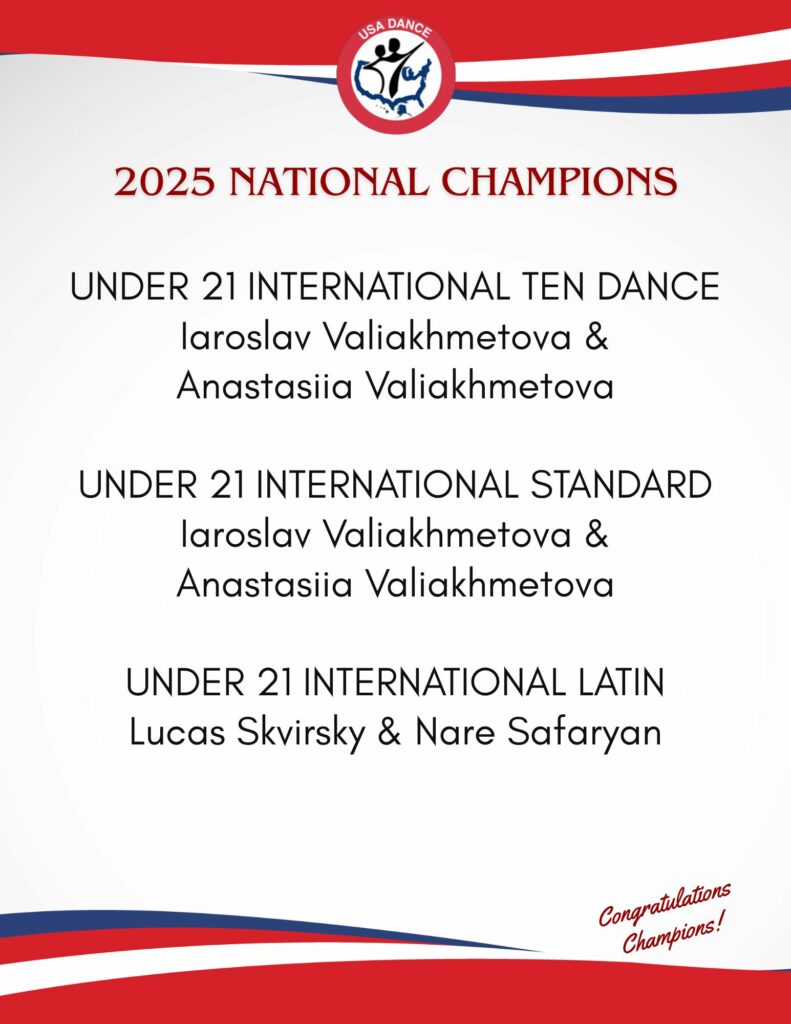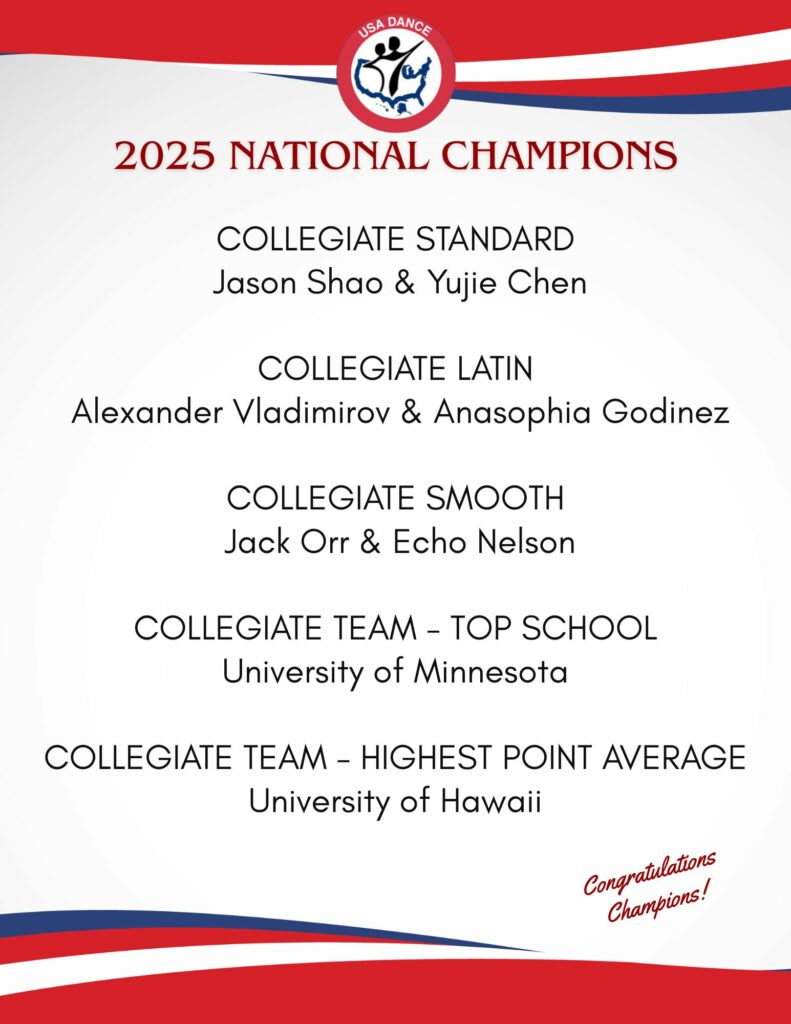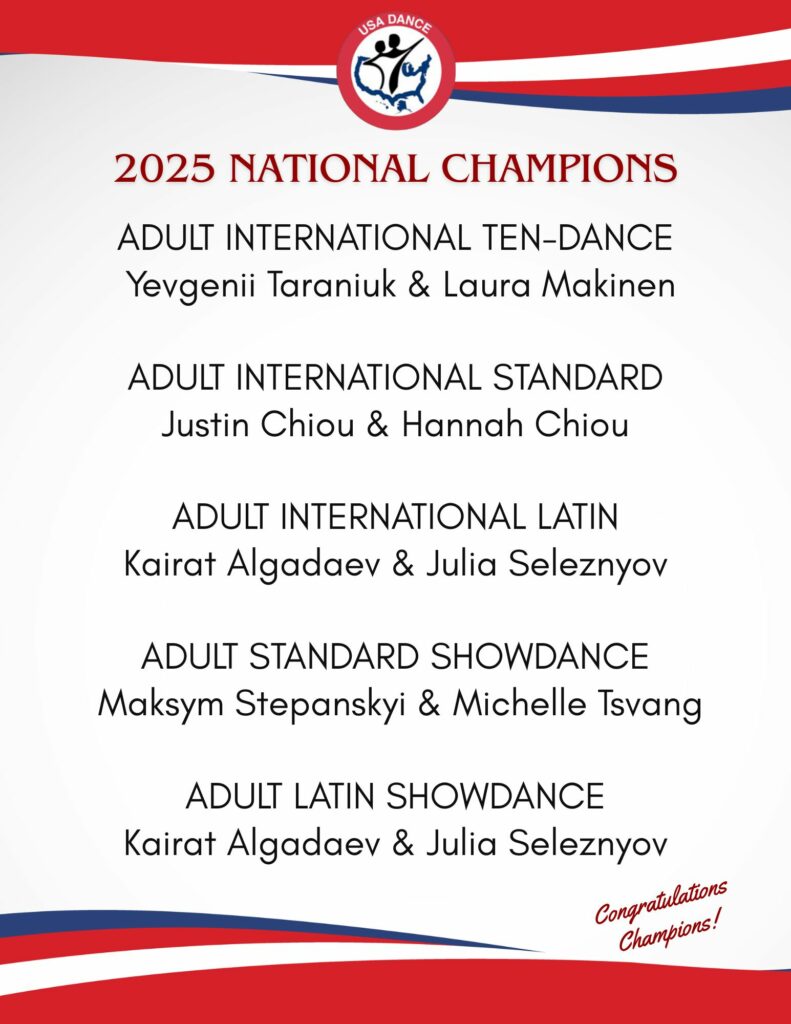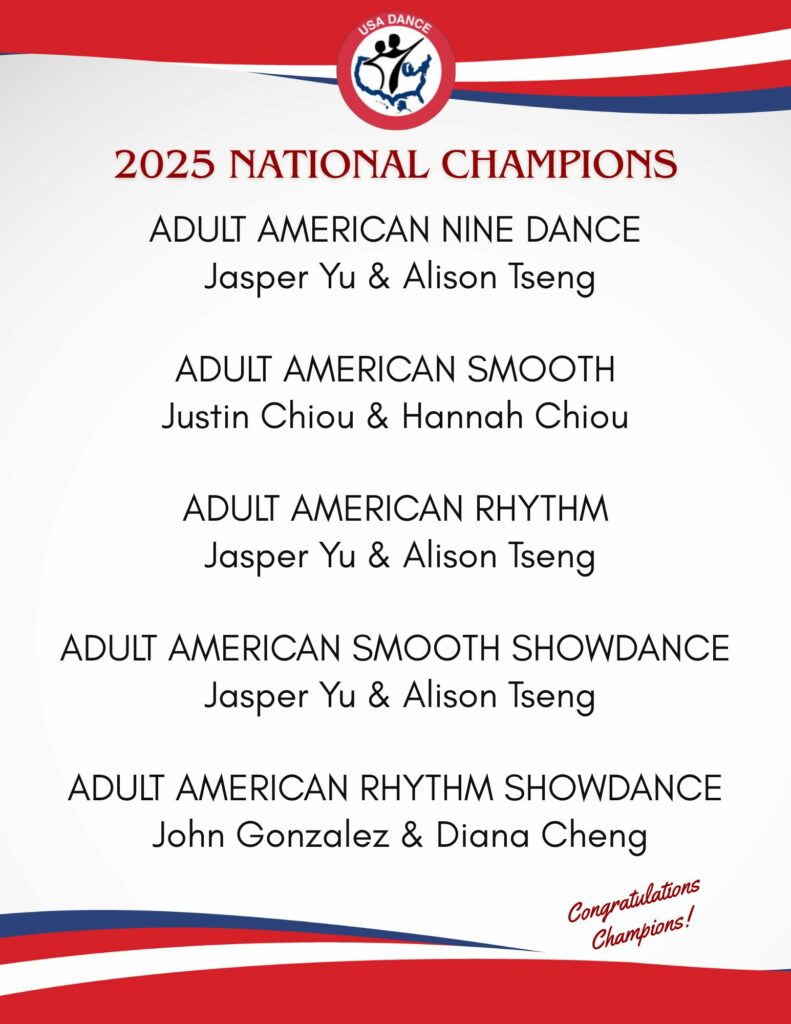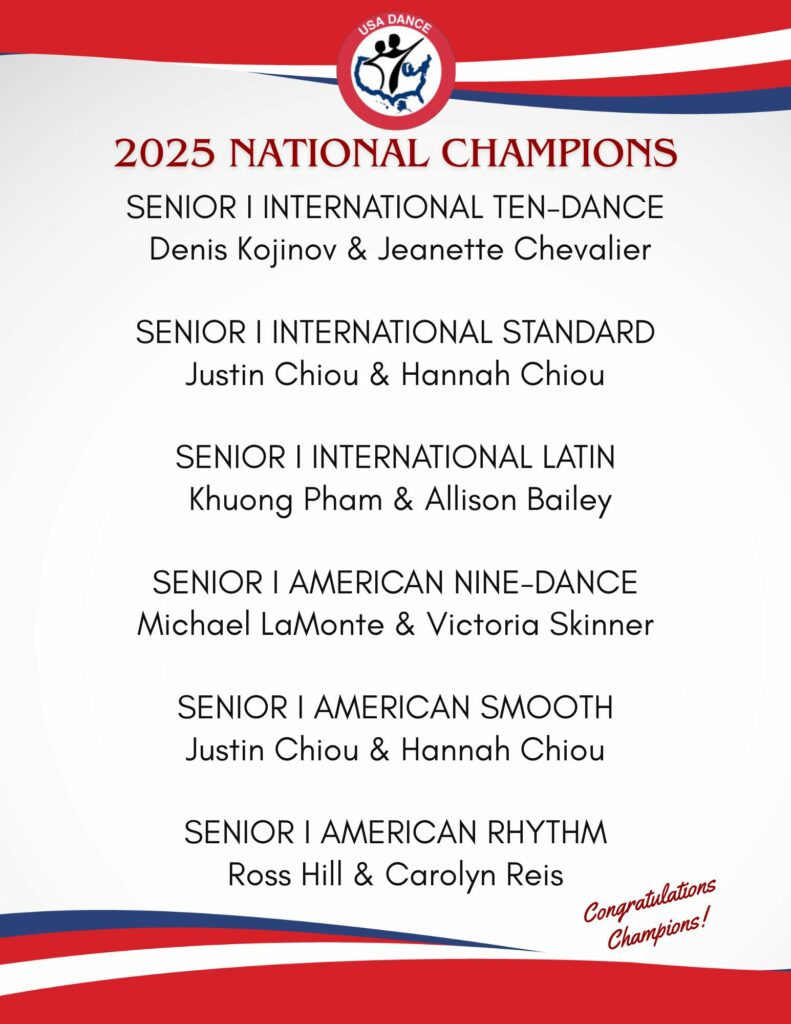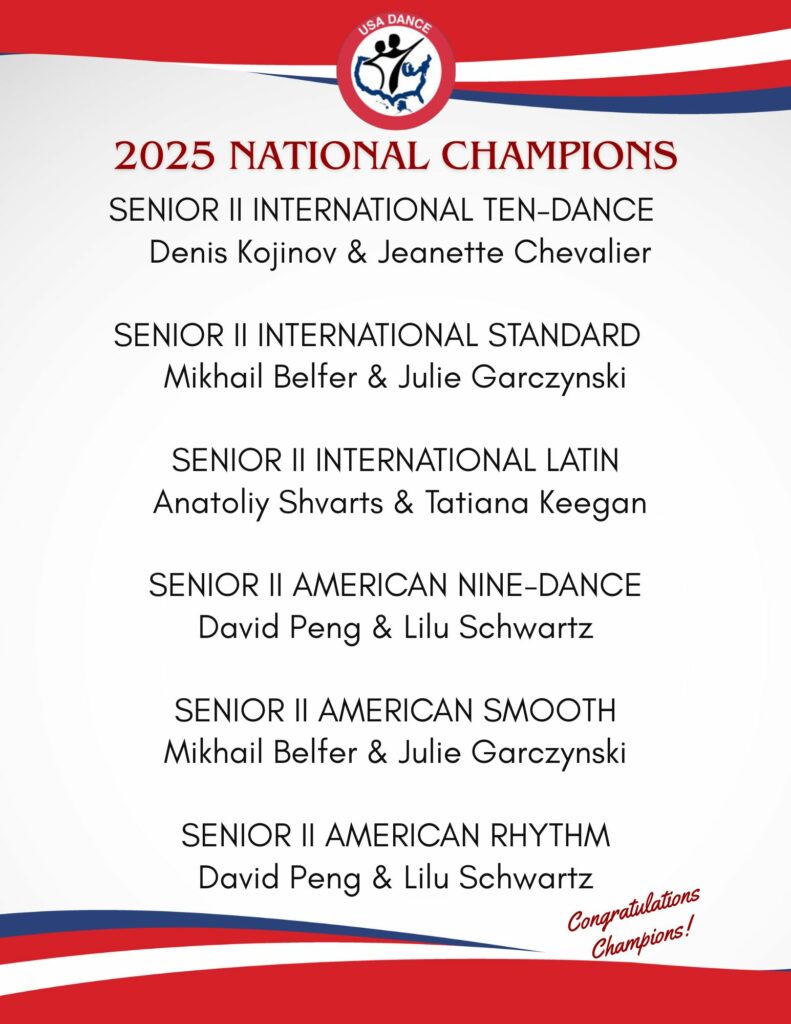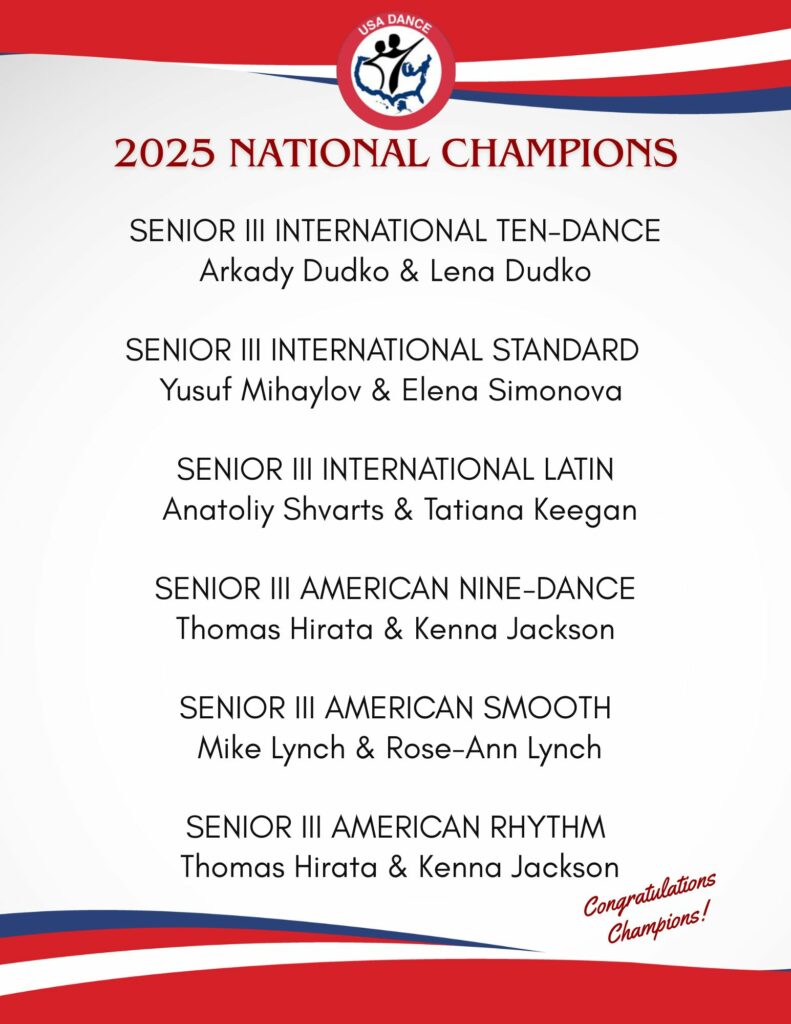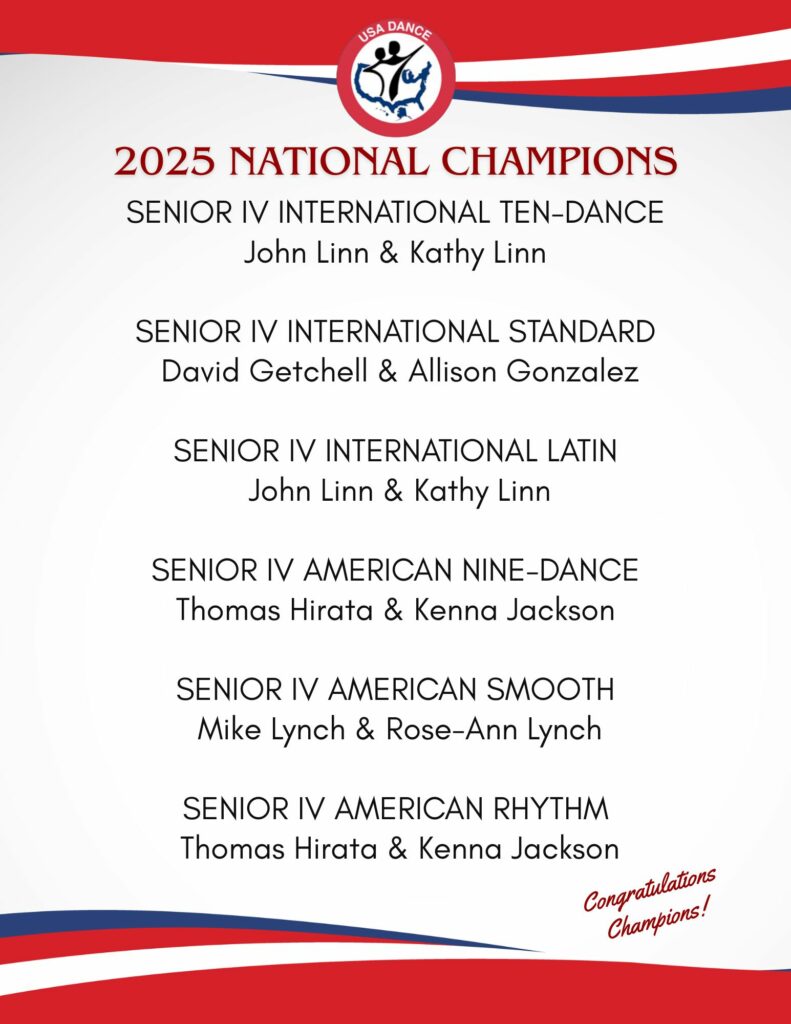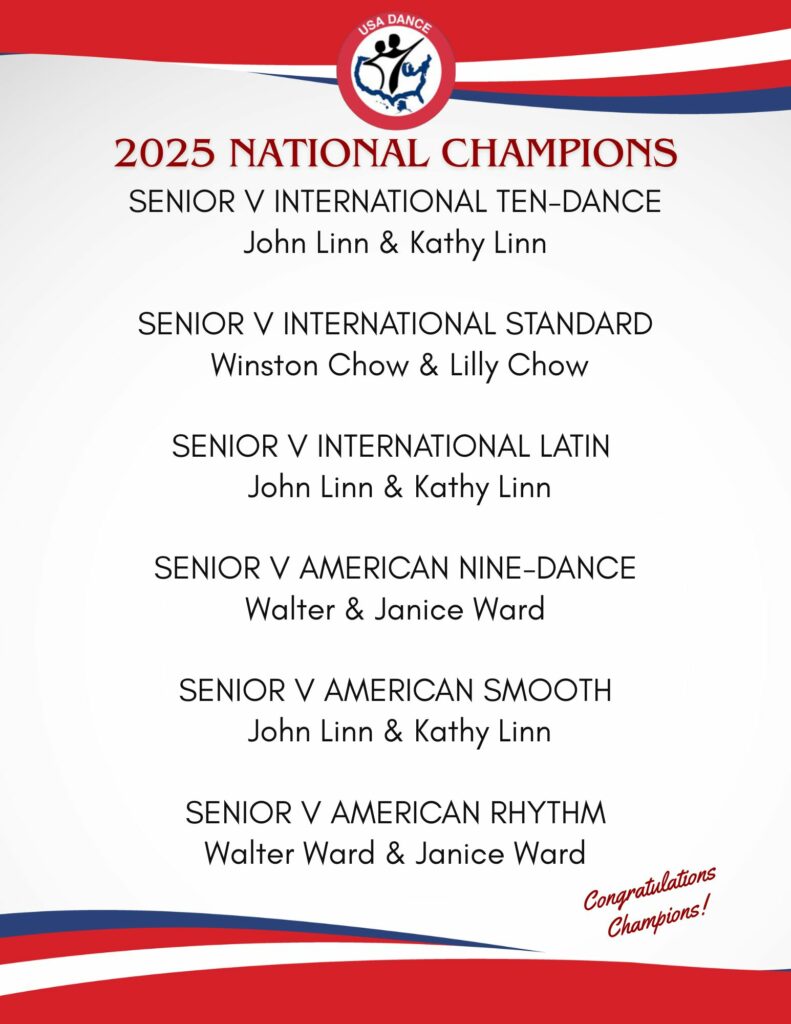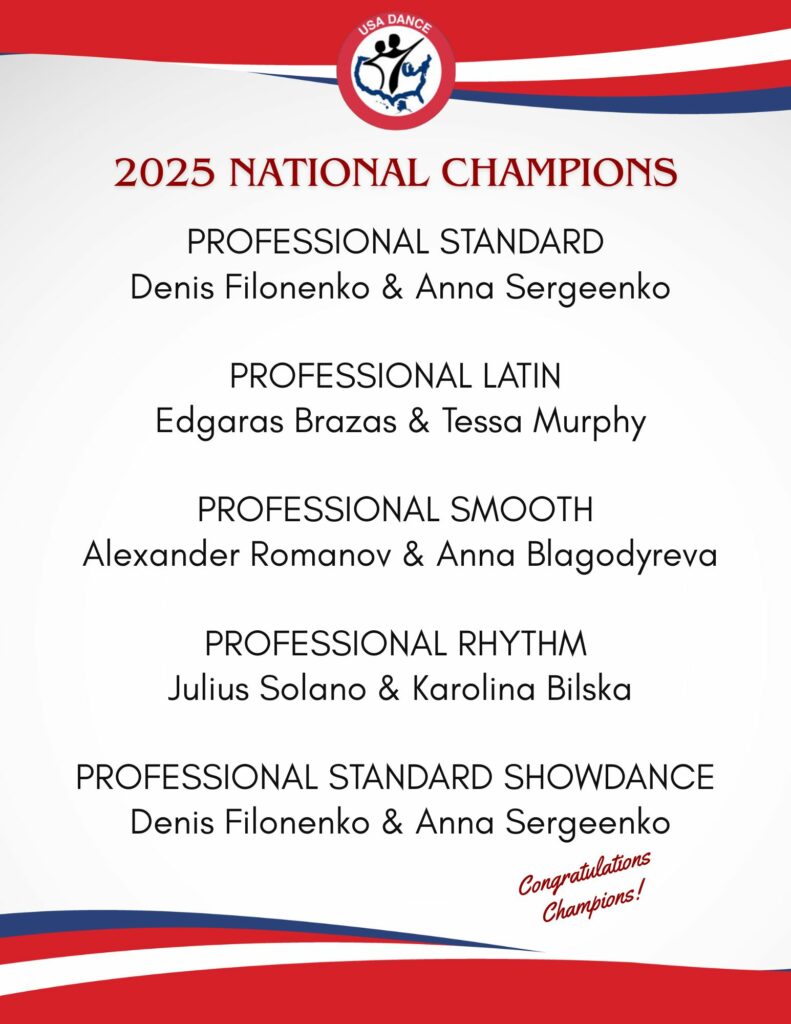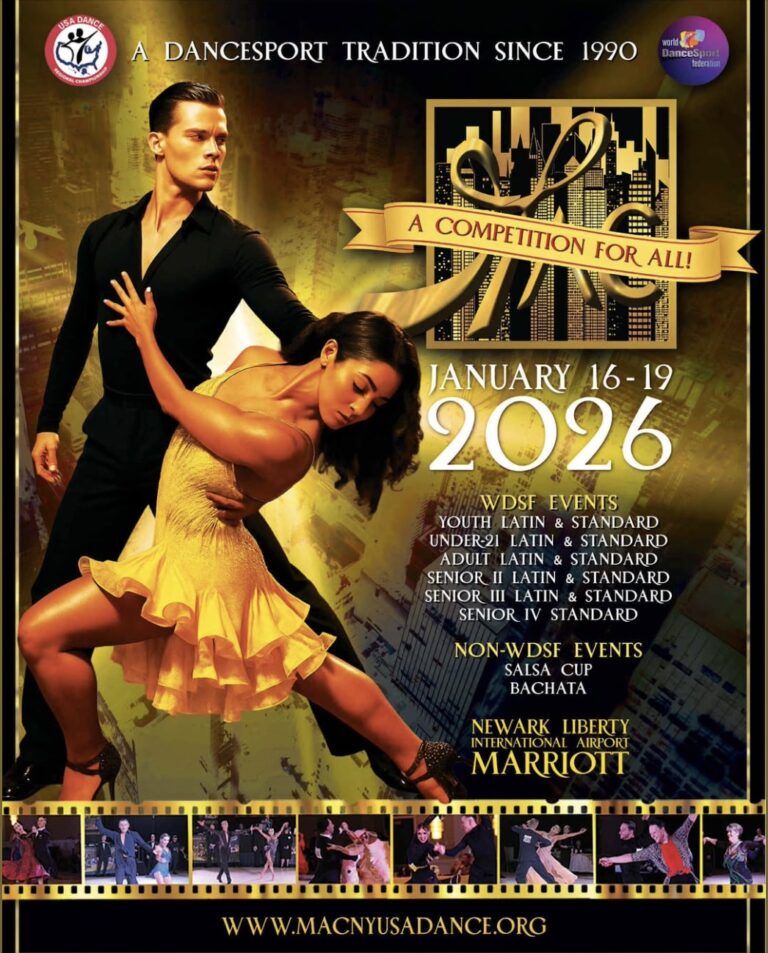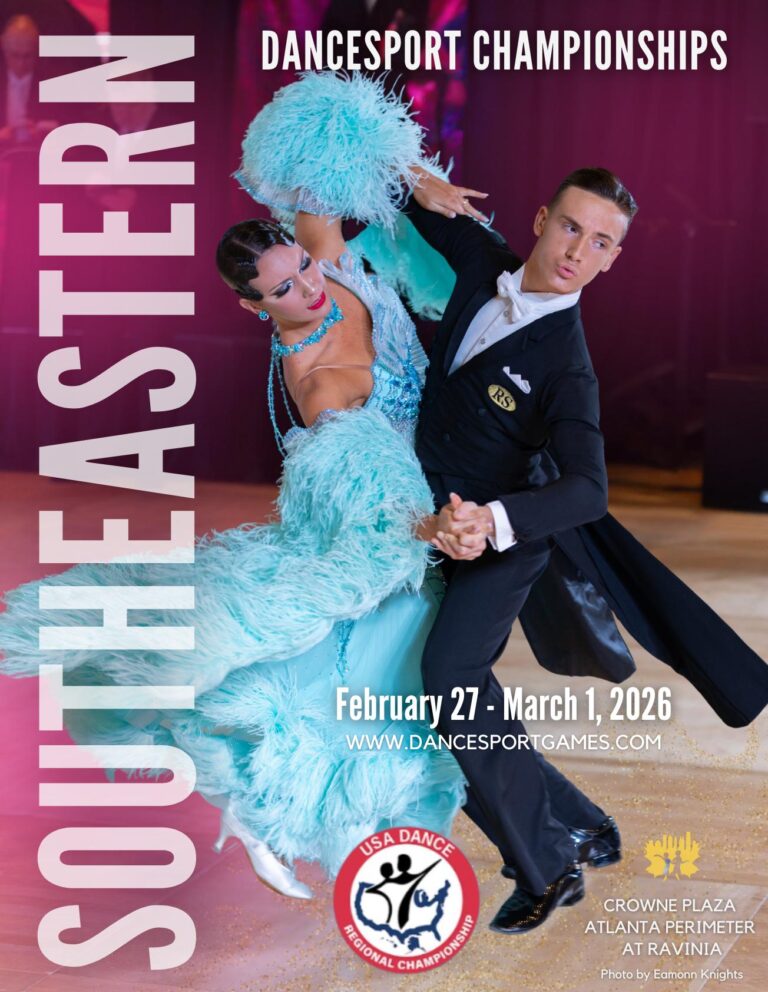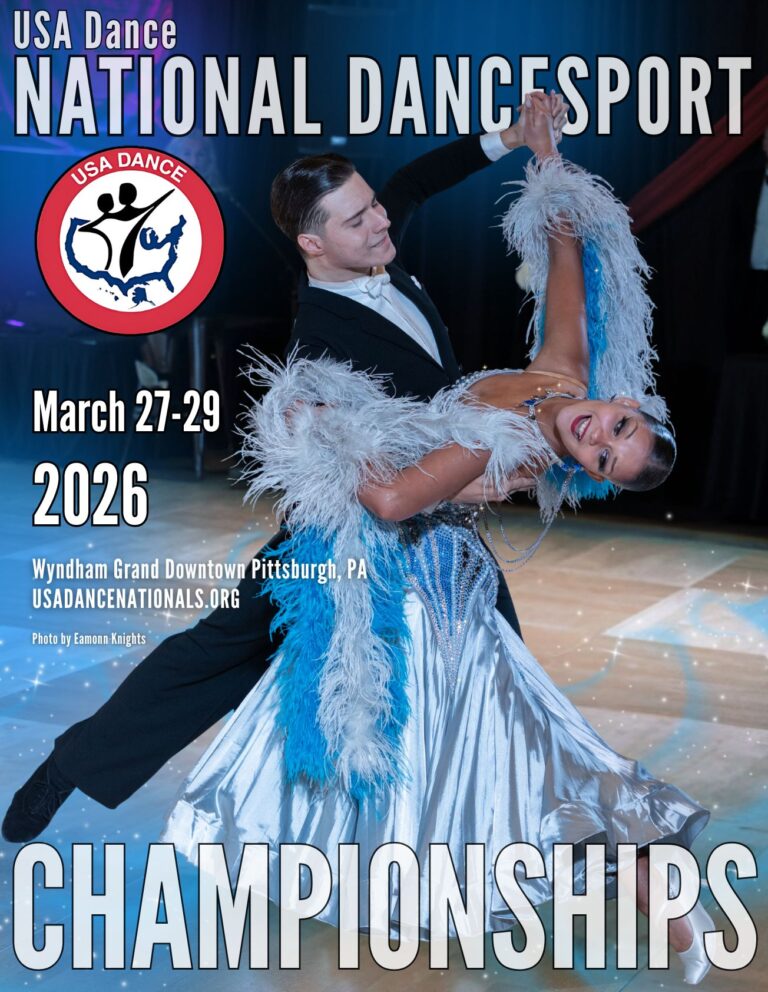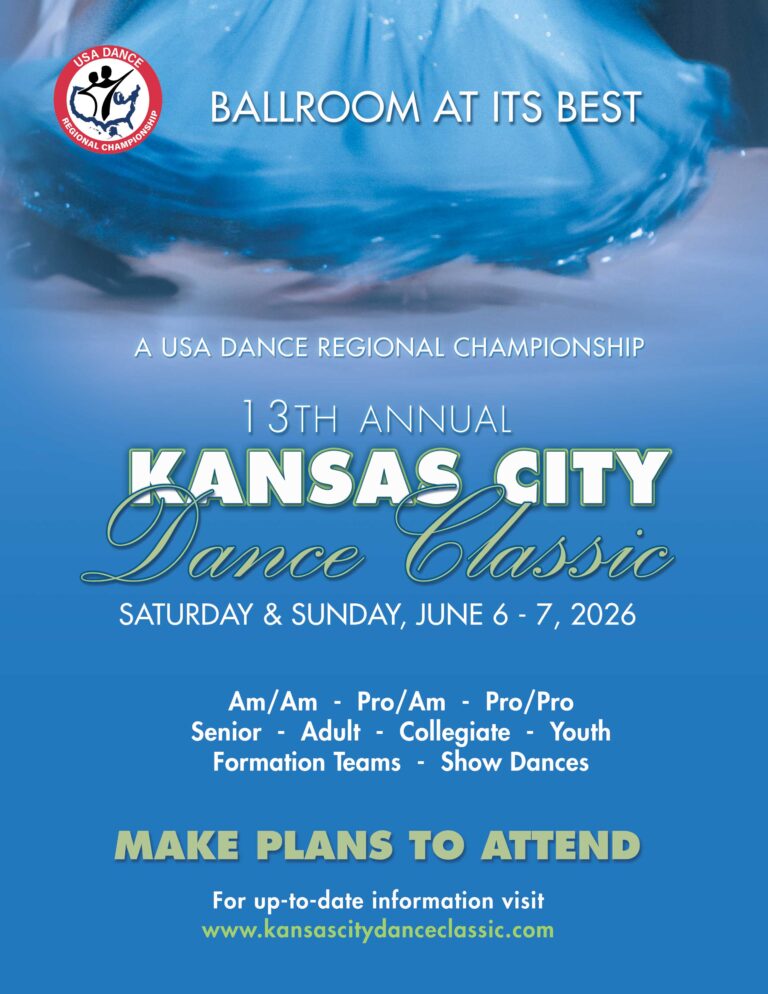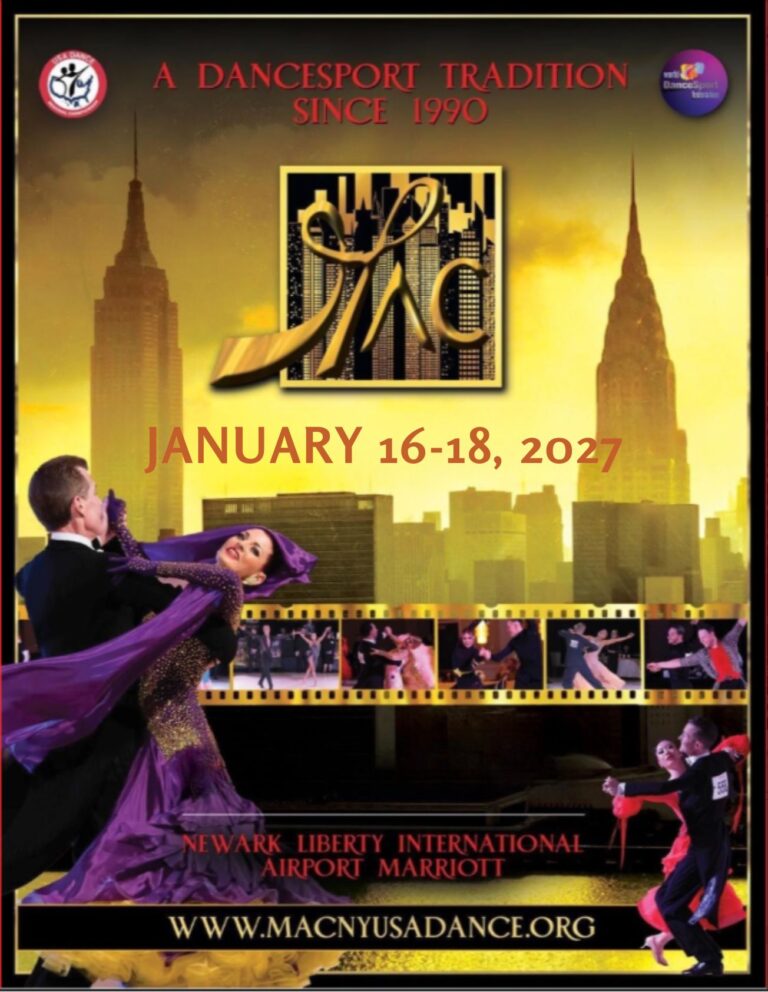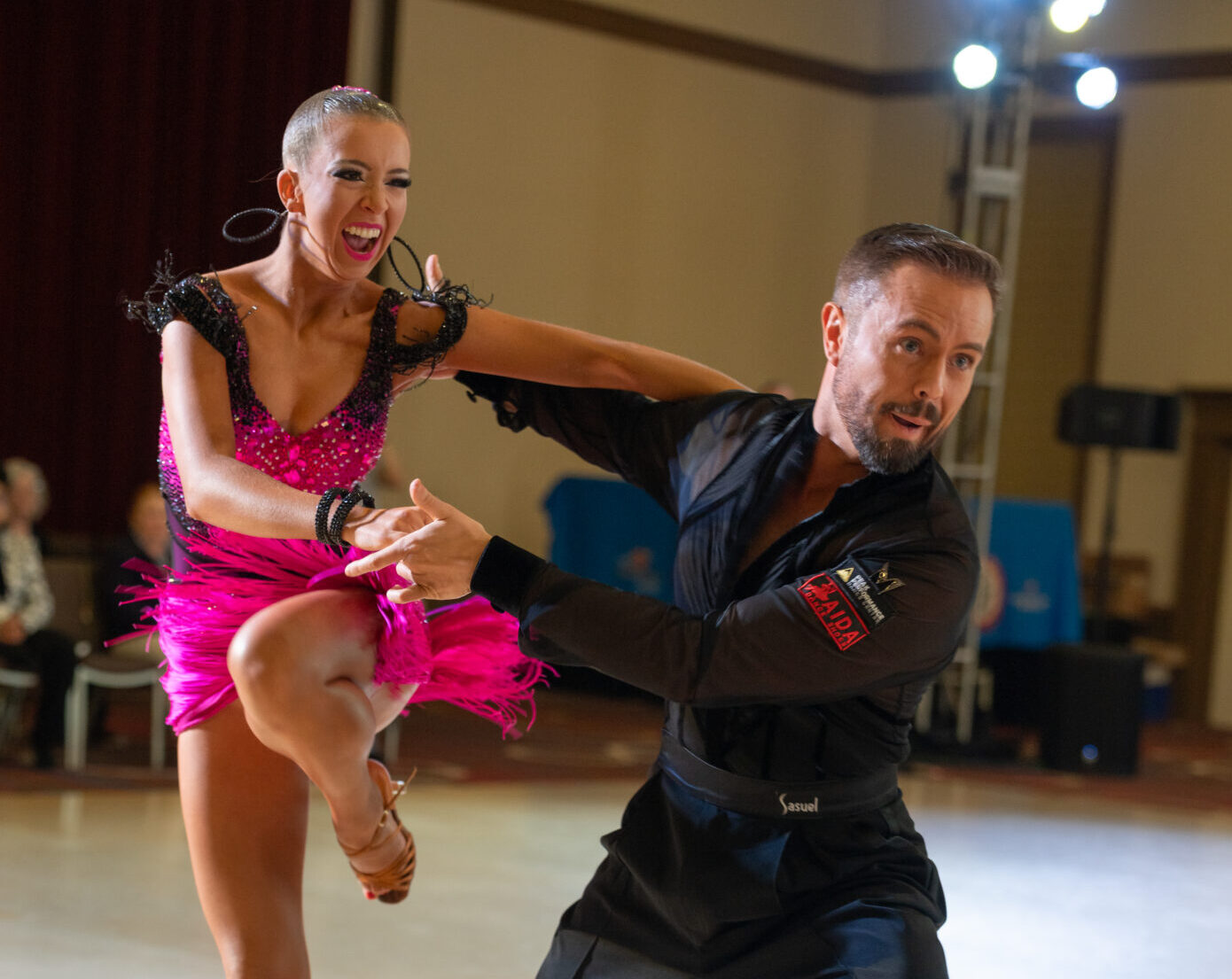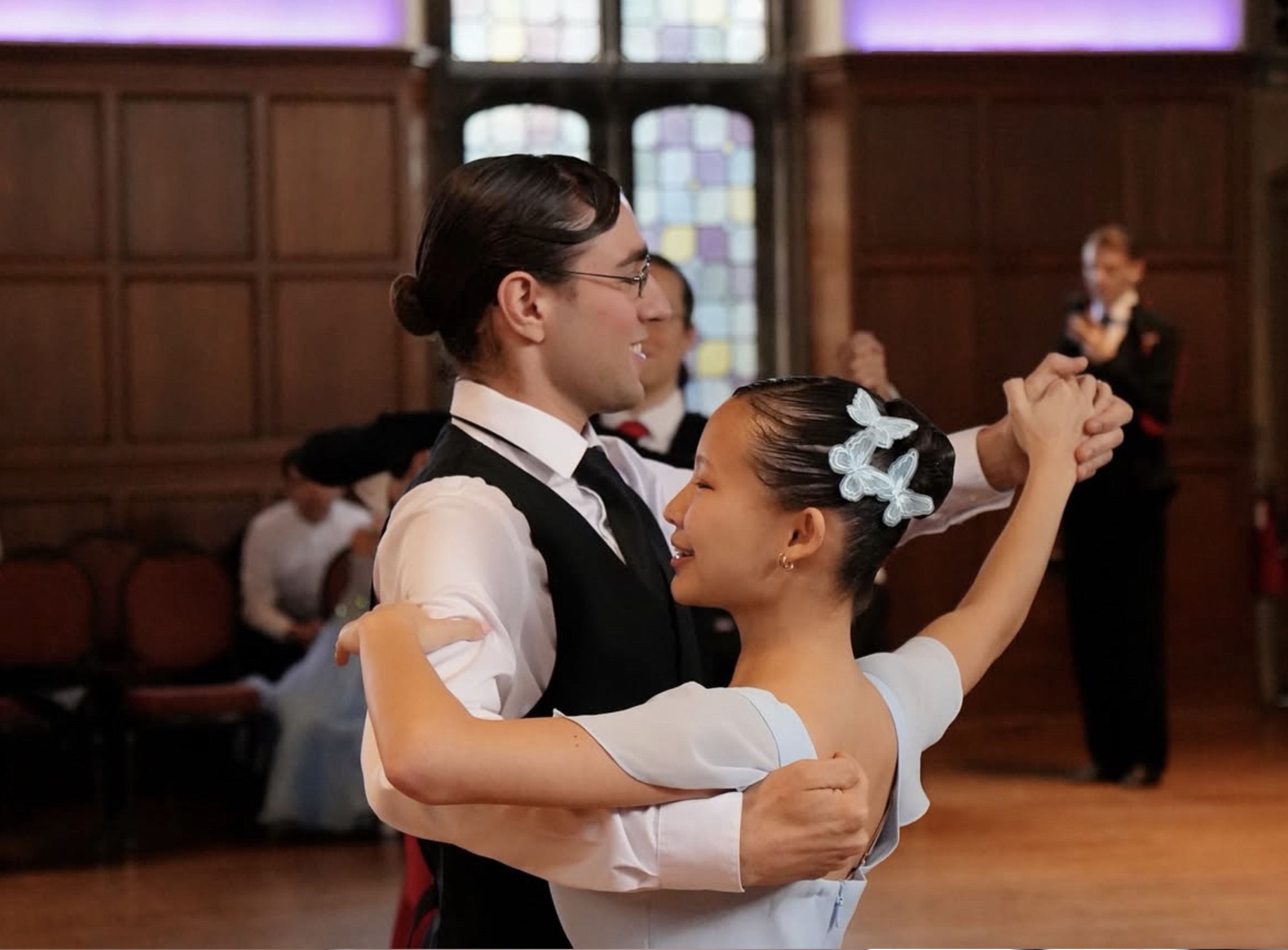As new organizers, we have gotten an extensive education over the past year. Our journey has been enlightening, and while we are still learning, we thought it would be fun to give the community a peek behind the scenes at what we, and other organizers, go through to provide you with a great experience. We hope it will be interesting for you, and maybe it will inspire you to help out or even start a competition of your own.
What does an organizer do?
The role of an organizer is a juxtaposition of managing everything from the really small details (are the officials sufficiently caffeinated?) to the event-level questions (what venue will host us?). In general, you start with the bigger questions and work towards the smaller ones, and this process often starts more than a year out. By the time the organizers are running one year’s competition, they have often already picked the dates and locked in the hotel contract for the next year. Once the venue is settled and USA Dance sanctions are in place, we put together a team to help run the event. This means finding a panel of adjudicators, a DJ, invigilators, a Chair of Judges, an MC, and a Scrutineer. Having a good team is critical to keeping the competition running smoothly, and we’ve been fortunate to work with a stellar group of officials. It is also good practice to have vendors at your competition! They provide essential goods and services and help to lend the competition energy and color. We typically have a photographer, a hair and makeup artist, costume vendor, shoe distributor, and massage therapist. Coordinating all these members of event staff typically happens between three to six months before the competition.
Then comes the advertising! You can put together the best team in the perfect venue, but if people don’t know about it, no one is going to show up. Most of you are probably familiar with the social media ads and mass emails. What you may be less familiar with is that behind the scenes, we often reach out to dancers and studios with specific details that might be of interest to them. The advertising serves to get people interested, but it is also an avenue for us to dispense vital information—the hotel block link, when registration dates, pricing, and other events like camps or workshops. We also have websites for our competitions. What has served to be a challenge is getting information to match across all these avenues. We may decide on pricing and send out an email campaign announcing as such. Then three weeks later, we notice that the website hasn’t been updated from last year’s prices! Or last year’s dates.
In the last month leading up to the competition, there is a lot more detail work. Organizers finalize food for officials and competitors and order or create numbers, name badges, and heat sheets. (Have you ever cried over a printer?) Putting together the schedule once registration closes typically takes a full weekend. Some aspects of the scheduling are pretty simple – don’t put Senior II and Senior III Viennese Waltz right next to each other, for example – but things can get very complex when accounting for all the preferences of our competitors. Constructing an evening schedule that starts late enough that the spectators have a chance to eat before, ends early enough that competitors have a chance to eat after, lets competitors stay in their costumes for awards, allocates enough time for costume changes, and is interesting and fun to watch is a major challenge. However, the payoff of getting to see competitors and spectators enjoy a well-executed evening session is worth it.
Finally, the competition itself is about the setup, welcoming your officials and vendors, and putting out the fires that inevitably occur. They are sometimes as simple as adjusting the thermostat, sometimes as complex as frantically changing the hotel table linens by yourself 20 minutes before the evening session starts because the hotel is understaffed. Perhaps the performers are dancing so hard they knock out power to the ballroom (okay, maybe the dancing didn’t do that).
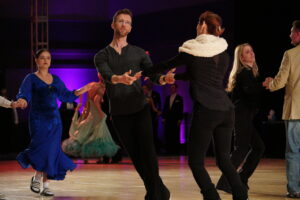
Socializing is also a huge aspect of our jobs. We love getting to talk to our competitors! We are always eager to hear how things are going in your personal dance journey, and any feedback on the competition. A lesser-known aspect that the competitors may not be aware of is just how social the officials are! Each day after the competition ends, the officials love to gather and socialize. Organizers often provide a private place to do so, along with snacks and drinks. It is a great way to unwind but it also crucial to forge connections. Being so new to the scene, we are still building our personal network. We are also amateur dancers and don’t have the shared history or experience of being professionals that lots of judges have. So, we really like to invite a wide range of judges and spend some time getting to know them.
What are the most challenging aspects of organizing?
There are a couple things. One is having the foresight and mental bandwidth to examine the competitions from multiple points of view. Making a great competition for collegiate dancers and senior competitors are two totally different beasts. The college dancer wants energy and fun dances, and to dance 10,000 events. You must work around their schools’ schedules and financial limitations. The seniors want a well-organized schedule with time for rest, costume changes, and food. They want professionalism, good music, and food after the evening show where they can sit down with a glass of wine and relax. And it is hard to know these things if you haven’t been in that position. In addition, how do you ask the right questions? It wasn’t until very recently that we learned that is important to the high-level senior dancers that they have food options available after the evening show. It seems obvious, but to someone who has never danced in the evening session, it was so far off our radar; the seniors would have starved until someone finally threw a complaint at us.
It is also challenging to track the small things. It is hard to forget to book a hotel, but very easy to forget to print waivers, or remember that the DJ likes Coke and to have a case available for him. We think the single most baffling aspect of the job is the mints. We put out little bowls of mints at the officials table and at the registration desk area for competitors. There are never enough. We go through hundreds, thousands of mints. It is genuinely amazing. People really, REALLY like mints.
What are the best parts of organizing?
One of the things we love about organizing is trying new things to make a better experience for competitors. We love playing with the idea of adding workshops, or a social dance, or a new fun dance. Daniel has pioneered the idea of ‘highlight events’, which are syllabus events where the final round is run in the evening session to celebrate the syllabus dancers with all the pomp and circumstance of the evening show – a taste of what everyone is working towards, and a way for all of us to honor our roots. (We were all syllabus dancers once!) They have been well received, but we didn’t know if they would be when we first ran them! Tiffany likes to mess with the room layouts. She has a day job as an architect, so orienting the rooms with optimal traffic paths and water cooler placements is right up her alley.
Why and how did you become organizers?
We both were introduced to ballroom dance in college. Our alma mater, Georgia Tech, had a robust dance club that we were a part of for at least seven years. (It is also how we met!) We served on the board and in various leadership and teaching positions, and Daniel was the one to convince the team to start running the Helluva Dance Comp. So, we technically became organizers very, very young. A collegiate competition proved to be very doable, and the club and its competition is still going strong. After we left school and kept dancing, we were disheartened to see how many people quit dancing after school, and how few people our age still compete, especially at syllabus levels. We pondered that the price increase must scare off some people, as well as people get busy starting families. When Wayne and Marie approached us about buying Southeastern it only took us about two to three weeks of serious contemplation before we leaped at the chance. We thought that as organizers we could make a difference, find that age gap and fill it, encourage young people to keep dancing, and support the kids and collegiate dancers who are the future.
It was also such a unique opportunity! As competitors, we often walked away from competitions thinking how “it was so cold in there!” or “why did they have us dance three rounds back-to-back?” These were the little thing that made us think, “I would do it differently”. Well, this was the universe telling us to put our money where our mouth was! After Southeastern, and the official hand over, we also ended up taking over another of Wayne and Marie’s competitions. In for penny, in for a pound as they say.
Do you plan to become organizers full time?
No! We quite enjoy our day jobs—part of the reason we were in college for so many years was for our careers. Daniel works as a mechanical engineer at a thermal comfort startup and Tiffany is living her dream of being a custom residential architect. It is a trick to balance these careers with competition organizing and a relatively new marriage. In time, we may acquire or start additional competitions, but for now we are happy where we are. To be completely transparent, we are also still paying off our initial purchase and start-up costs. This is not a get-rich-quick scheme. We love to dance and to see people dance, and hope that the competitions we organize can help get more people in the ballroom.
How do I start as an organizer?
If you have ever entertained thoughts of running a competition, the first thing you should do is run your numbers. Scope out a potential venue and date. Try to find a geographic area and time of year that needs a competition to fill the gap. USA Dance can help with this since they have a calendar of competitions. They also have an organizers committee that regularly dispenses information. And there are many, many people willing to help. This ranges from free advice to monetary support, to volunteers. If you have any questions, please feel free to ask us.
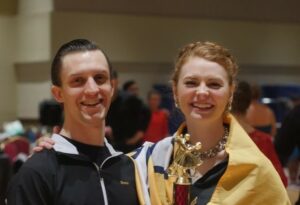 Tiffany Bouquet is a custom residential architect who has been dancing Amateur for eight years. Daniel Bowman is a mechanical engineer, competition scrutinizer, and the designer of Ballroom Comp Express; he has been dancing 12 years. Along with competing in both American Smooth and International Standard, this young, energetic couple organizes the Carolina Fall Classic and Southeastern DanceSport Championships.
Tiffany Bouquet is a custom residential architect who has been dancing Amateur for eight years. Daniel Bowman is a mechanical engineer, competition scrutinizer, and the designer of Ballroom Comp Express; he has been dancing 12 years. Along with competing in both American Smooth and International Standard, this young, energetic couple organizes the Carolina Fall Classic and Southeastern DanceSport Championships.

